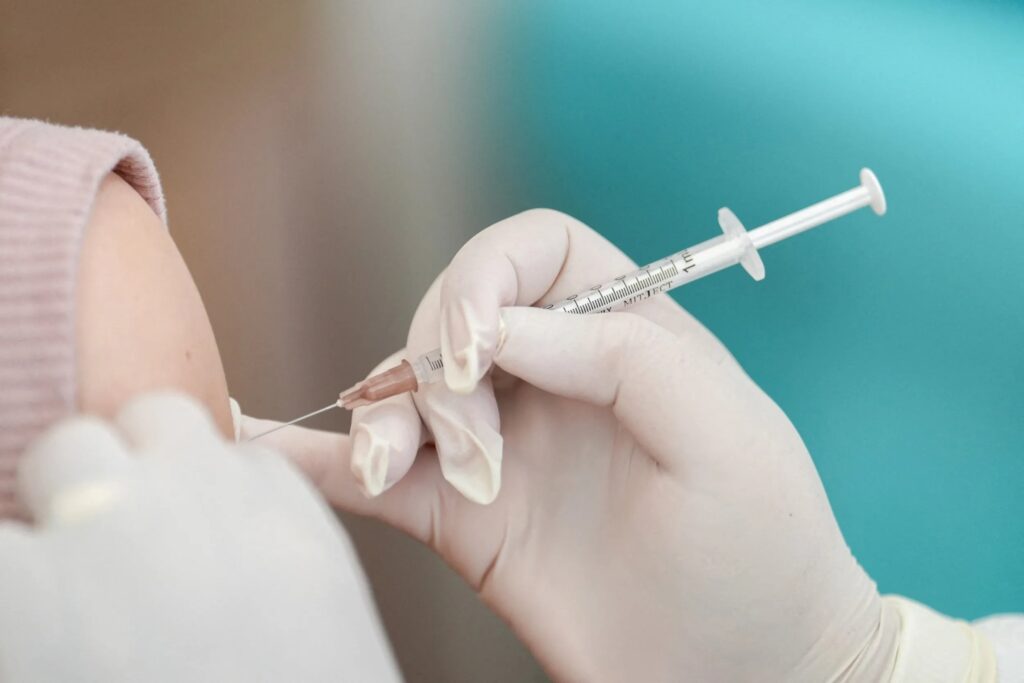Starting August 1, England will begin offering a vaccine to protect against gonorrhoea, marking a global first in the fight against rising sexually transmitted infections. Health authorities announced the plan in response to soaring infection rates and growing concerns over drug-resistant strains. The new vaccine, originally made to prevent meningitis, has shown it can also reduce the risk of gonorrhoea. Sexual health clinics across the country will start giving the jab to eligible people to help control the spread.
A New Use for a Proven Vaccine
The vaccine, named 4CMenB, was first used to protect against meningitis B, a serious brain infection. Researchers discovered that this vaccine can also guard against gonorrhoea, as the two bacteria share similar proteins. Though not designed for this purpose, the vaccine has been repurposed after studies showed it can lower the risk of getting gonorrhoea by about 32.7% to 42%.
Dr. Mary Ramsay, Head of Immunization at the UK Health Security Agency, stated:
“This is a major step forward. It’s not a perfect shield, but it gives us another layer of defense at a time when antibiotic resistance is making treatment harder.”
Vaccine Rollout Starts August 1
From August 1, sexual health services in England will begin offering the jab. People at higher risk will be contacted and invited to receive it. This includes those with frequent new partners or past STI diagnoses.
The rollout will be handled by local NHS services, and those eligible will receive information through text messages, letters, or during regular appointments.
One Visit, Multiple Protections
During their vaccine appointment, patients will also be able to get other important vaccines. These include:
-
HPV (human papillomavirus)
-
Mpox (formerly known as monkeypox)
-
Hepatitis A and B
Offering these together helps protect people from several diseases at once and encourages higher vaccine uptake.
Gonorrhoea Cases at Highest Levels Since 1918
In 2023, England recorded more than 85,000 gonorrhoea cases—the highest number in over a century. Health experts say the real number could be even higher, as many cases go undetected.
Symptoms are often silent, especially in women. When they do appear, they can include pain when urinating, unusual discharge, or pelvic discomfort. Even without symptoms, untreated gonorrhoea can cause serious health issues such as infertility or joint infections.
Natural Immunity Is Rare
Having gonorrhoea once does not mean you are protected in the future. Re-infection is common, especially without consistent condom use. This is why the vaccine offers a new and important tool for prevention.
Although it doesn’t provide full protection, health officials say even a 30–40% reduction in risk can slow down the spread across the population.
Growing Danger from Drug Resistance
Doctors are increasingly worried about antibiotic resistance in gonorrhoea strains. The main treatment—ceftriaxone—is becoming less effective in some cases. In recent years, extensively drug-resistant (XDR) gonorrhoea has been detected in countries around the world.
This means that some infections may no longer respond to any of the usual medicines. Preventing infections with a vaccine is now seen as a critical step in reducing the risk of a future health crisis.
UK Leads the Way in STI Prevention
With this move, the UK becomes the first country in the world to roll out a national gonorrhoea vaccination program. Public health leaders hope this example will inspire other countries to follow.
Officials are also using this opportunity to remind the public about safer sex practices, including regular testing and using protection.
The vaccine rollout reflects a broader strategy to protect sexual health, reduce STIs, and slow the spread of drug-resistant infections. England’s decision comes at a time when many countries are seeing similar trends in STI rises and growing treatment challenges.
This program could set the standard for other nations as they look for ways to handle rising infections and protect public health. The UK government says it will monitor the program closely and share findings with international health bodies.


